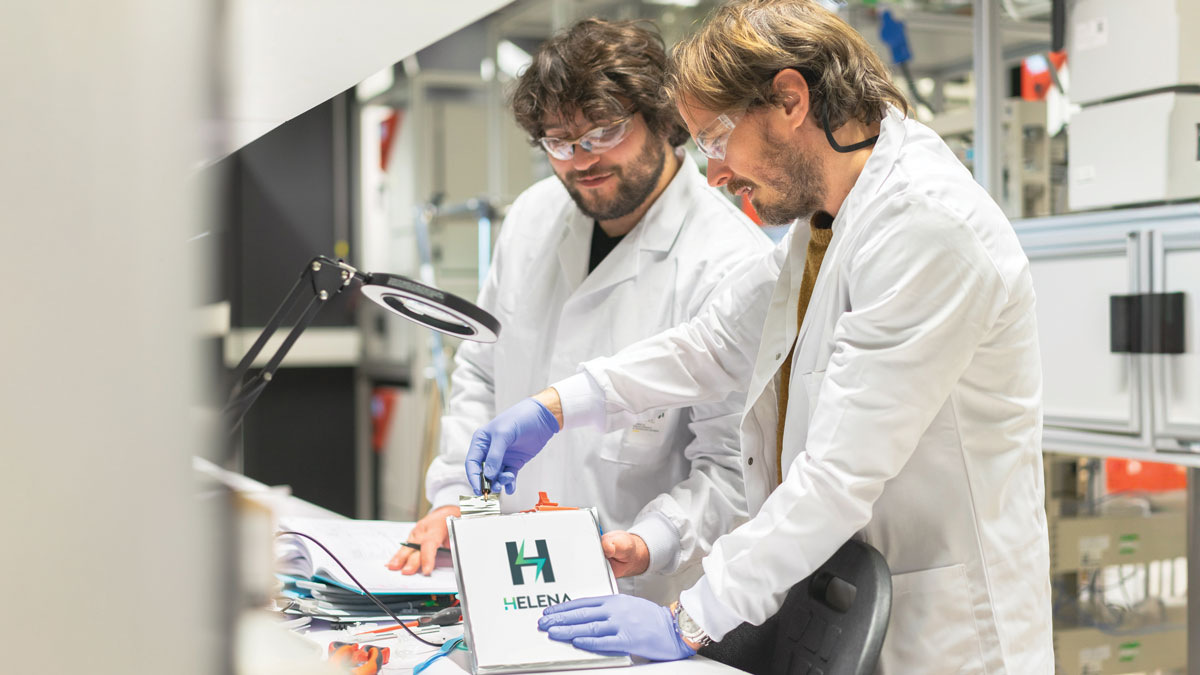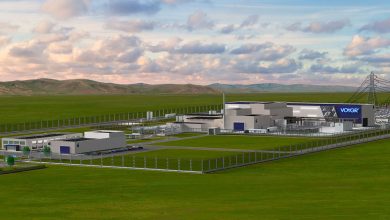HELENA Project’s First Major Milestone
HELENA project achieves its first major milestone with the assembly of a complete solid-state battery cell with halide electrolyte.
- The European HELENA Project, funded by the EU through the Horizon Europe program in the field of the promotion of projects linked to the development of high-performance batteries, aims to be decisive in the manufacture of the solid-state battery that will enable the take-off and expansion of electric aviation.
- The consortium, formed by 15 European entities and companies that have been working for more than 20 months in the development of the project, has also achieved significant advances on improving the electrochemical properties of key battery components and on their processing towards full cell fabrication.
The European HELENA project, aimed at revolutionizing the energy storage sector applied to high-profile areas such as electric aviation, has achieved its first major milestone, with the assembly of the first complete cells for solid-state batteries with halide electrolyte. Significant advances linked to the electrochemical properties of the electrolyte have also accompanied this achievement.
These achievements have been made possible after 20 months of exhaustive work by 15 European companies and entities coordinated by the CIC energiGUNE research center, in the framework of a project funded by the EU through the Horizon Europe program for the promotion of projects linked to the development of high-performance batteries.
Specifically, the advances obtained have been as follows: First, a conductivity of the halide electrolyte of several mS/cm has been established, making it possible to cycle the cells at high currents and lower temperatures. It has also been demonstrated that it is possible to work with this halide in dry room conditions, thus opening up real possibilities for its application in industry.
On the other hand, it has been confirmed that the halide electrolyte has a high thermal stability, which guarantees safe and reliable operation of the batteries. Finally, the first complete cells of the HELENA project have been assembled using a lithium metal anode, a halide electrolyte and an NMC622 cathode with a charge of up to 4 mAh/cm2.
In addition to these relevant advances, the HELENA project has also enabled the establishment of protocols for the safe handling and testing of these materials and cells, ensuring their compliance with European safety standards and regulations, as well as the development of an advanced recycling concept for this type of batteries, with a focus on maximum guarantees in terms of safety and sustainability.
With the progress achieved so far, the HELENA project is on track to successfully complete its objectives within the established timeframe, which include the development of safe and efficient solid-state batteries with high energy density and power, based on a high-voltage active material, a high-capacity lithium metal anode and a conductive lithium halide electrolyte. With this development, the end user will be able to benefit from improved performance in electric mobility for long distances and fast battery charging. In addition, the scaling of the technology will allow a cost reduction in the manufacture of these storage devices.
In addition to CIC energiGUNE, which is listed as project leader, 14 other entities from the continent are part of the HELENA consortium: AIT-Austrian Institute Of Technology GMBH, Saint Gobain Recherche SA, Umicore SA, Lionvolt BV, Nederlandse Organisatie Voor Toegepast Natuurwetenschappelijk Onderzoek, Fraunhofer Gesellschaft Zur Foerderung Der Angewandten Forschung EV, Customcells Itzehoe GMBH, Rheinisch-Westfaelische Technische Hochschule Aachen, Mimi Tech GMBH, IFP Energies Nouvelles, Pipistrel Vertical Solutions Doo Podjetje Za Napredne Letalske Resitve, Leonardo – Societa Per Azioni, Fev Europe GMBH, and Zabala Innovation Consulting SA.



